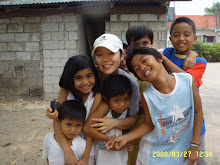10. How different is your modern culture from the sawi tenants?
Chapter after chapter, I began to realize how unusual yet fascinating the life lead by the Sawi people was, in the context that our culture and their culture is on utterly opposite ends on a magnet. The contrast between this peculiar Sawi culture and our culture is so extreme that I find myself feeling eerie and amazed simultaneously.
Right from the first few chapters of the book, I realized that the Sawi people thought treachery as a value and considered “fattening with friendship for slaughter” as the most honorable act one could do. Also, by devouring the flesh of the person who was “slaughtered” signifies the power that the eater now has because he/she has taken in the dead person’s spirit that is now utterly under their control. In our culture however, one does not kill a person for the purpose of eating that person for power and respect. On the other hand, treachery, robbery, trickery, and murder are far from being held as respectable. They are considered as despicable and disgraceful acts and are trained from early childhood not to lie, steal, or hurt other people.
The previous sentence leads to another difference - child behavior. “The Sawi child is trained to obtain his will by sheer force of violence and temper” (p.157 – Peace Child). Also, the children are, “…goaded constantly to take revenge every time he is hurt or insulted” (p.157). Furthermore, “Every Sawi Child knows that if he throws a violent enough tantrum, he will get his way” (p. 156). On the rare occasion when a parent actually strikes a child with intent to punish them, “…the child will often strike back, or at least throw himself into convulsive rage to bend the parent’s will. The parent will accept this reaction, thus encouraging a similar response next time. Generally punishing a child is frowned upon, and the reason given is “in case you break his spirit”.” As Don Richardson says, we can “Call it discipline-in-reverse” (p. 156).
The condition that the Sawis live in is also appalling. The hygienic level of the Sawi culture is settled at the lowest possible level. A part of the book described two girls who were walking off the trail and occasionally pulled off leeches from their feet and ankle while not breaking the conversation. As a modern culture with medication and resources, what they consider as “normal” is utterly shocking for us.
“Lord, in all of time and space has Your message ever encountered a world view more opposite than this one? Could there be a world view more opposite to the gospel?” (p. 154).
33% of the world population is considered as Christians and Christianity stands as the religion with the largest percentage of believers. God’s words and His gospel are studied while the Sawi people are on a wholly different thinking level as depicted in the quote above. They are not only cruel, they honor the act of cruelty; “Their highest pleasure depended upon the misery and despair of others” (p. 153). Beyond their pleasure in cruelty, the situation that really struck gold of being the opposite from the gospel was the Sawi people’s reaction to the story of Judas and his betrayal to Jesus. For them, Judas was the hero; he was considered as a “Super – Sawi”.
I realized that the differences that lie between our modern culture and the Sawi culture are extreme. It will be interesting to see how Don Richardson overcomes these differences and obstacles in order to teach the Sawi people about the word of God.


2 comments:
Lucia, this is a great post and I think it would’ve been a superb blog post if you had made the contrast with your experiences as well. It is very easy to follow your thoughts and the quotations from the book enhance the understanding for the readers. Your writing style really captures the readers, I think. It was very intriguing to read your interpretations of the Sawi culture. Nice post =)
Great post. Your writing is improving, you are commanding your audience and developing a sense of depth in your ideas. Eloquence and flow are slowing evolving into your writing voice.Mrs.Mc.
Post a Comment